Otto von Bismarck is one of the key figures who is discussed concerning the formation of a modern Germany. Few people are so central to the story of a nation’s formation as this man, and his contributions as a statesman and diplomat are hard to overstate when looking at the formation of Germany as we know it today.
From creating the first true welfare state to helping to create a truly unified German state, Otto von Bismarck’s efforts on behalf of Germany made it possible for Germany to survive the strife of World War I and become a modern world power.
Many thought Otto von Bismarck as a master of strategy, and he was willing to initiate decisive wars and conflicts to try and create a unified state (History.com editors, 2019). He was also the creator of various progressive reforms that were not even considered in other countries during this period.
While his actions likely helped create tensions that led to World War I, his efforts to unify Germany allowed Germany to survive years of war with other powers worldwide.
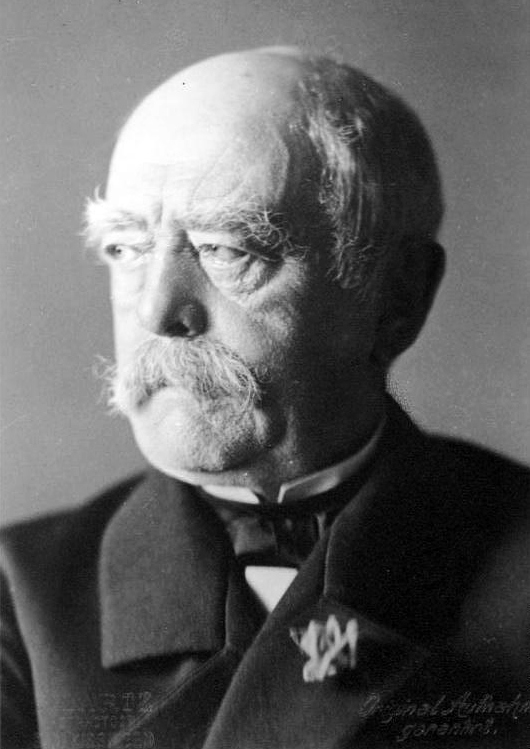
Early Life
Otto von Bismarck was born on April 1, 1815. He belonged to a noble family of Prussian Saxony heritage. His early efforts in his career would actually be focused on Prussian politics and not German politics due to this heritage. Bismarck grew up in comfort in Farther Pomerania, which was, at this time, a province of Prussia.
Due to his privileged upbringing, Bismarck was well-educated and spoke English, French, Italian, Polish, and Russian. His compatriots described him at the University of Greifswald as a brilliant, eccentric, friendly young man.
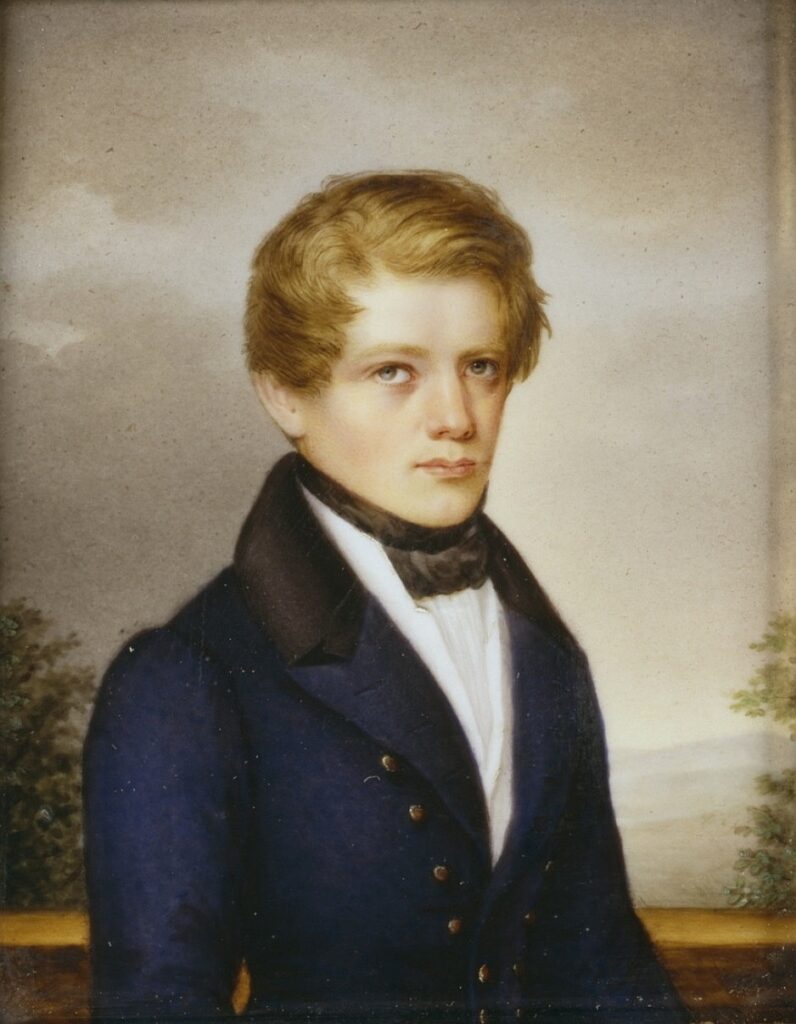
Bismarck served a portion of his compulsory military service in the Prussian Army starting in 1838, but he was unhappy with his post and was released to return home to help manage the family estate when his mother died.
He actually spent about ten years caring for the family business with no intention of moving into politics or statesmanship (Age of the Sage Editor, n.d.).
Entry to Politics
By 1847, there were stirrings of social issues that everyone in Prussia and Germany felt. Bismarck had become aware of these issues and was chosen as a representative to the newly created Prussian legislature, which was called the Vereinigter Landtag. He immediately gained a reputation for being a reactionary politician who was gifted with his rhetoric and who was growing a popular following.
Bismarck was an unapologetic royalist who supported the divine right of the monarch to rule. By the time that revolutions started to crop up in response to a lack of support for the monarchy, Bismarck was well-placed to respond.
Much like the other European states impacted by a lack of support for the monarchy, Prussia faced a revolution in 1848. King Frederick William IV did not want to subdue the revolution by force, which was greatly unpopular in Prussia.
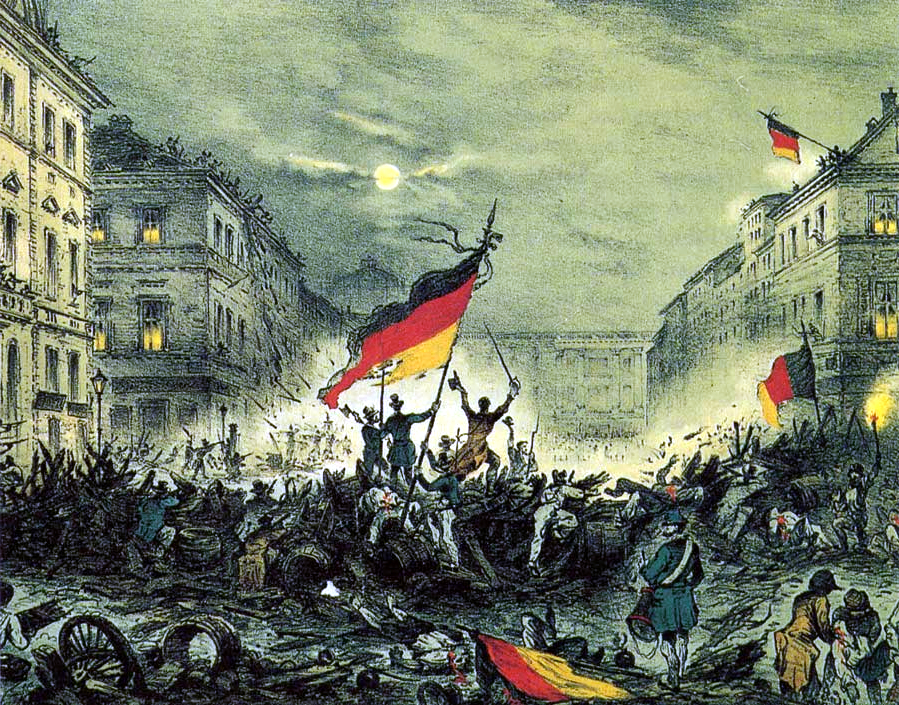
Bismarck traveled in disguise to Berlin to offer his services to help resolve the revolution. His actions during this time led to his election as the Landtag.
While he did not believe in a unified Germany at this time, he did believe that an assembly of German states should be held to try and create a constitution that would prevent further conflict between the various individual states that made up Germany.
Due to his work as envoy to the Diet of the German Confederation in Frankfurt, Bismarck was offered a seat in the Prussian House of Lords.
The following eight years that Bismarck spent in Frankfurt would make him a believer in a more pragmatic solution to the troubles of the German states and would convince him that a unified Germany was likely the only way to prevent opposition to the monarchy and instability.
Work as Ambassador to Russia and France
When Frederick William IV suffered a stroke in 1857, Bismarck was asked to serve as ambassador to France and Russia. This period was a time of great upheaval in Germany’s politics, but Bismarck could not work on these problems, having been sidelined in France.
One of the main outcomes of the change of rulers to Prince Wilhelm during this period was the ongoing conflict between the king and the Prussian Diet.
This is considered the turning point of Bismarck’s career as he was the only official who could reason with the monarch and the Diet. As a result, Bismarck was appointed Minister-President and Foreign Minister.
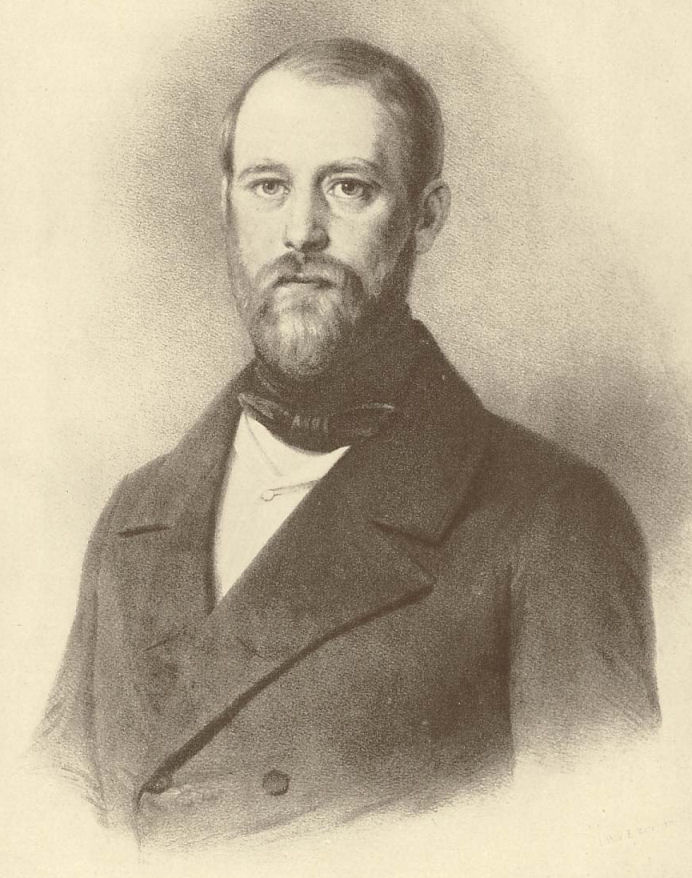
This was fortuitous because tensions were rising between Great Britain, France, Austria, and Russia. These tensions eventually led to the first World War, and Bismarck was positioned right in the heart of the changes that would lead both to a unified Germany and a world war.
Bismarck’s powerful personality came in handy during this period, and he gained the trust of the monarch and the ear of various other ambassadors and officials who were working hard to come up with a solution for stability in the region.
While Bismarck was never a very popular politician with the people, he was well-placed in the monarchy’s trust, which would serve him well despite his unpopular status with the citizenry.
Work Toward the Unification of Germany
Bismarck earned the title, the Iron Chancellor due to a speech that he gave called the Blood and Iron speech. This was one of the first steps Bismarck took toward unifying the 39 individual states that made up Germany during this period.
He would lead most of these changes in the name of Prussia, which would later cause part of the conflict that would contribute to the rising tensions that caused World War I.
The death of King Frederick VII of Denmark partially aided the defeat of Denmark. A series of internal conflicts within Denmark led to Bismarck removing the current government leaders and negotiating Austria’s ownership of Denmark. Out of the deal, Prussia received Schleswig and Austria received Holstein.
When conflict exploded with Austria in 1866, a German radical tried to assassinate Bismarck. The war lasted seven bloody weeks before Prussia won the Battle of Koniggratz. Prussia annexed Schleswig, Holstein, Frankfurt, Hanover, Hesse-Kassel, and Nassau, and Prussia was granted the presidency of the North German Confederation.
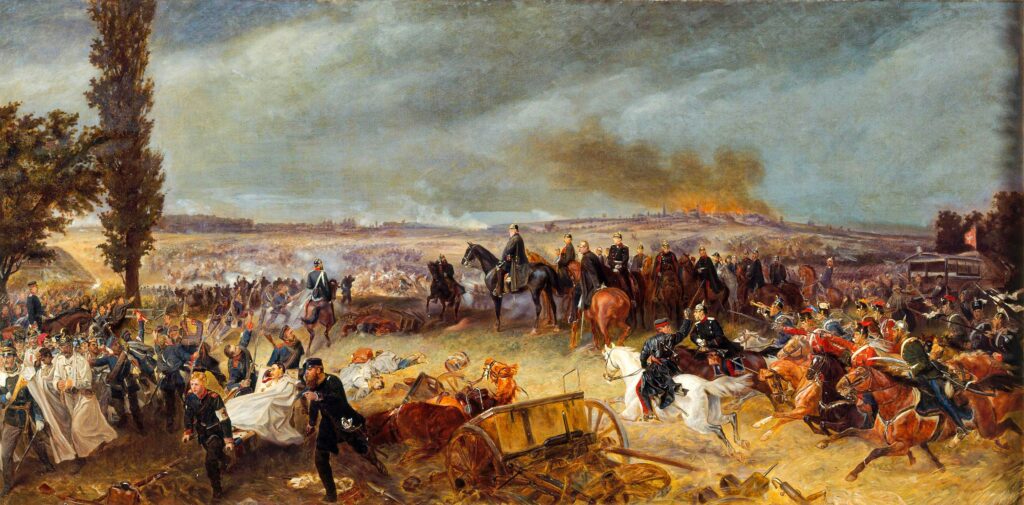
During this period, Bismarck was the most popular in Prussia due to his leadership during the conflict with Austria.
During this period, Bismarck made it quite clear that he was a Prussian patriot, not a German nationalist. This statement would haunt Bismarck later in his career and help lead to the strife that would fuel the outbreak of World War I.
The main reason Bismarck’s actions during this period were so problematic was mostly due to a major oversight on his part about the arrangement of the new Germany based on territory rather than language or culture.
The truly disparate nature of Germany, when it was comprised of 39 individual states, had never been clearer than in the months and years following the early unification.
Franco-Prussian War and the Unification of Germany
France was not pleased with the result of the conflict between Prussia and Austria, and Napoleon III was angered by a lack of attention to concessions in the form of territory, which he had requested following the close of the conflict.
Numerous other political factors helped influence the coming war, and France officially declared war on July 19. Prussia was successful during the war, and Napoleon III was actually sent into exile to England.
Motivated by worries about further conflict with other European powers after the war with France, Bismarck made the first move to unify all of Germany. His negotiations were successful without that much effort, and he created a Federation of German states that all of the various German leadership could agree upon.
Bismarck is seen as the main driving force for this process, and many others around Europe felt him to be clear in his desire to create a Germany that was a world power.
This was not a popular decision, and further damage was done to the relationship with France due to the requirement that France cede Alsace and part of Lorraine to Germany.
Some of Bismarck’s success in unifying Germany was undermined by a depression that impacted Europe and the United States and social unrest caused by his anti-Catholic policies.
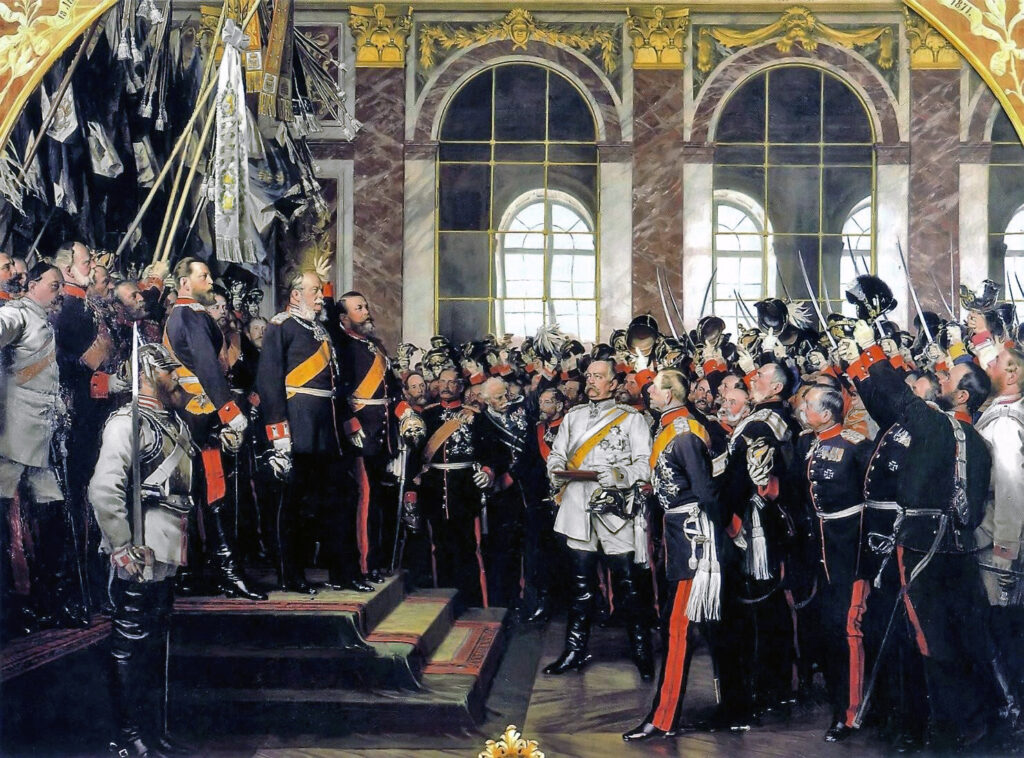
Efforts were also made to “Germanise” Germany, which led to stress between social groups and religions. Bismarck also showed extreme xenophobia and prejudice against the Poles residing in Germany, a sentiment which would be carried over during both of the coming World Wars.
Bismarck is also considered the main driving force behind the unpopular and destructive Scramble for Africa. The Berlin Conference, which he arranged, would lead to the destruction of Africa as it had existed before the incursion of Europe and would help create economic and colonial tensions that would cement the run-up to World War I.
More popular among Bismarck’s work to unify Germany were his efforts to create a socialist state that would offer support for its citizens that would be recognized by other modern welfare states today.
However, his lack of commitment to workers’ rights would cause so much damage to popular opinion about his leadership that he would be removed from power.
Removal From Power
The Election of 1890 marked a turning point for Bismarck. His lack of support for worker’s rights, his pressure on Catholics, and his efforts to make Germany a superior world power had become so unpopular that pressure was put on the new Emperor, Wilhelm II, to force Bismarck to resign. Bismarck resigned with a sense of failure and wrote his memoirs. He also predicted the coming conflagration that would become World War I as well.
Partially due to being removed from power, Bismarck has remained a towering figure in Germany’s history. Had he stayed in power, he might have been painted in a much less favorable light and might also not have been able to complete some of his life’s work.
Otto von Bismarck’s Legacy
Bismarck, for all of his mistakes, was a charismatic and important figure who made a unified Germany more than just an idle thought. Few public servants were in power for as long as Bismarck, and his 28 years as prime minister of Prussia witnessed many developments in Germany as a world power that would never have been possible without his forceful personality and his clear vision for the future.
Bismarck changed the landscape of European politics and the map of Europe itself while also impacting colonial politics and unwittingly helping pave the road for the first World War.
He is the owner of a mixed legacy but stands head and shoulders above the rest of the German politicians or Prussian nationalists of his time.
While it would be easy to point the finger at Bismarck and state that he created a vision for Germany that would never have been free of major conflict, likely, Germany would never have survived either World War without being unified in advance of the conflict.
Bismarck showed the world what a strong diplomatic leader could do, even in the face of great challenges. Germany owes Bismarck both gratitude and condemnation in equal parts, and his complicated legacy shows this quite clearly.
Sources
History.com Editors, editor. “Otto von Bismarck.” 7 June 2019, https://www.history.com/topics/germany/otto-von-bismarck. Accessed 8 Jan. 2023.
Age-of-the-sage, editor. “Otto von Bismarck & German Unification.” https://www.age-of-the-sage.org/historical/biography/otto_von_bismarck.html. Accessed January 8 2023.
History Exchange Editors, editor. “Otto von Bismarck: A Brief Guide to the ‘founder of Modern Germany.’” https://www.historyextra.com/period/victorian/otto-von-bismarck-unification-germany-unify-biography-facts-how-prussian-politician/. Accessed January 8 2023.
J. H. Hoffman. “Bismarck, Otto von.” https://www.ohio.edu/chastain/ac/bism.htm. Accessed 8 Jan. 2023.
Britannica.com. “Otto von Bismarck German Chancellor and Prime Minister.” https://www.britannica.com/biography/Otto-von-Bismarck. Accessed 8 Jan. 2023.
Heritage History. “Otto von Bismarck.” https://www.heritage-history.com/index.php?c=resources&s=char-dir&f=bismarck. Accessed January 8 2023.

